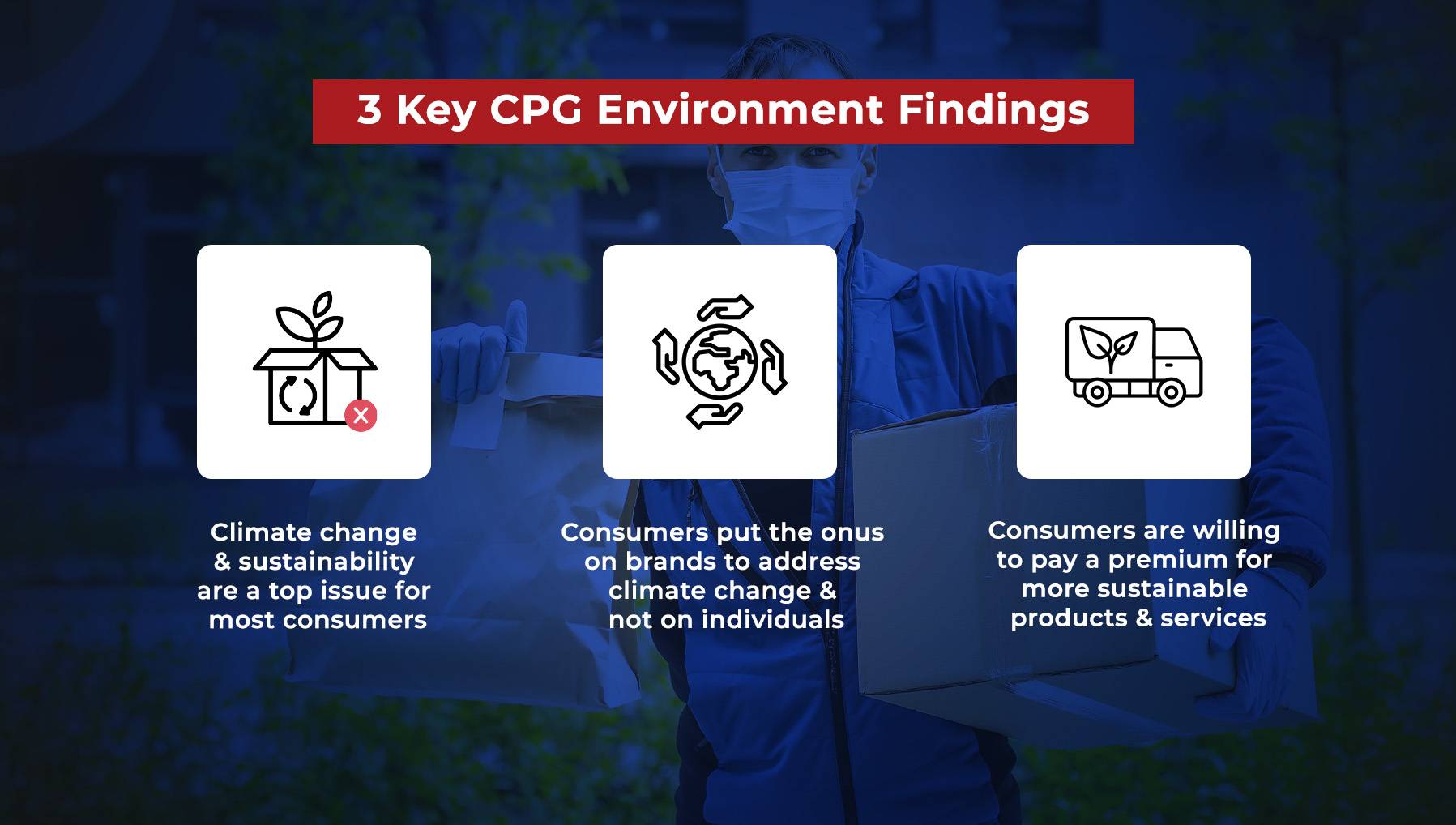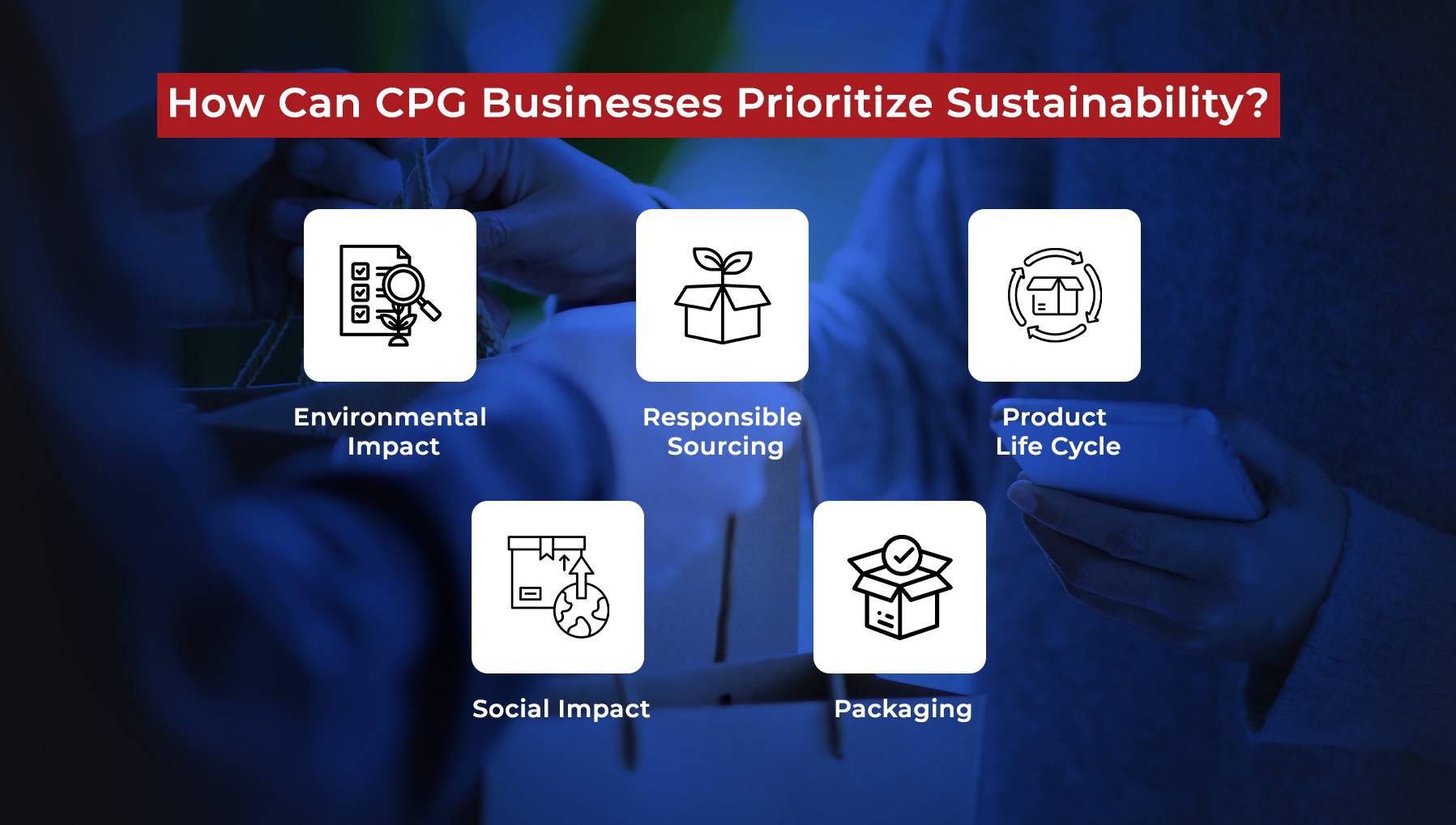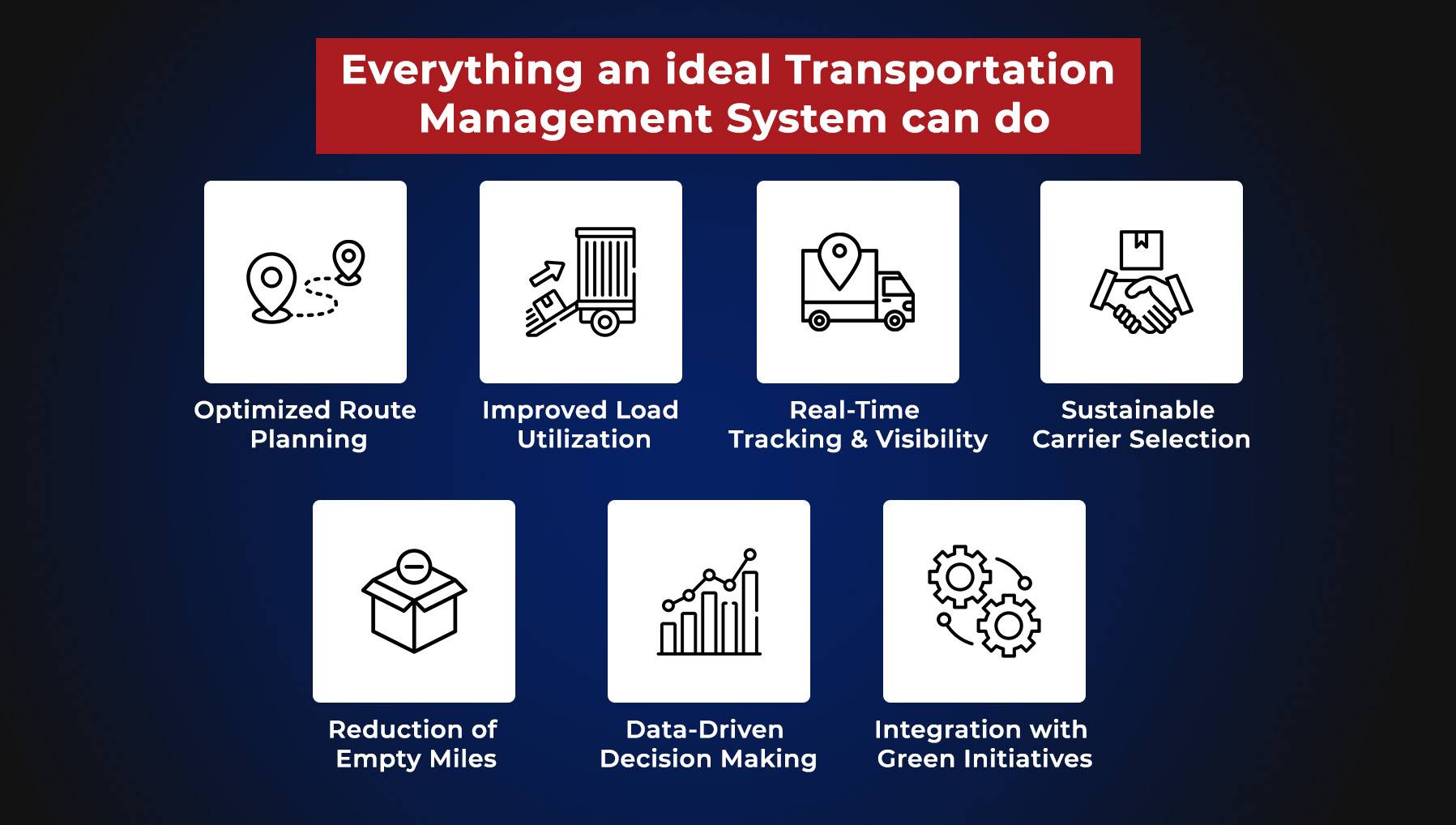Environment and CPG businesses go hand in hand considering the major impact caused in today’s time. The Consumer Packaged Goods (CPG) industry is characterized by high-volume production and frequent product turnover, resulting in significant logistical challenges and environmental impacts. As sustainability becomes a critical concern, businesses are increasingly seeking ways to reduce their environmental footprint. One powerful solution lies in the implementation of Transportation Management Software (TMS).
3 Key CPG Environment Findings are Listed Below

– Climate change and sustainability are a top issue for most consumers
– Consumers put the onus on brands to address climate change and not on individuals
– Consumers are willing to pay a premium for more sustainable products and services
The CPG (Consumer Packaged Goods) supply chain refers to the complex network of processes and activities involved in the production, distribution, and sale of goods that are consumed and replaced frequently, such as food, beverages, toiletries, and cleaning products. This supply chain encompasses several stages, including sourcing raw materials, manufacturing, warehousing, transportation, and ultimately delivering the finished products to retailers and consumers.
Deep Dive: Your Ultimate Guide To Choose The Best Transportation Management Software
Efficient management of the CPG supply chain is critical due to the high volume and turnover of products, the necessity for strict quality control, and the demand for timely delivery to meet consumer needs and maintain competitive advantage. Advanced technologies and logistics management software are often employed to optimize operations, reduce costs, and enhance responsiveness to market demands in this fast-paced industry.

Download Infographic: Benefits Of Implementing Transportation Management Software In Your Logistics Operations
What more can be done Using an Ideal Transportation Management System?

1. Optimized Route Planning
Transportation is a major contributor to greenhouse gas emissions in the CPG supply chain. TMS leverages advanced algorithms and real-time data to optimize route planning, ensuring that delivery trucks take the most efficient paths. By reducing the distance traveled and avoiding traffic congestion, TMS helps in cutting down fuel consumption and emissions. Optimized routes not only lead to environmental benefits but also result in cost savings and faster delivery times.
2. Improved Load Utilization
TMS enhances load planning by consolidating shipments and maximizing the use of available space in vehicles. Better load utilization means fewer trips are required to transport the same amount of goods, leading to a reduction in fuel usage and emissions. Efficiently loaded vehicles also experience less wear and tear, contributing to longer vehicle lifespans and further environmental benefits.
3. Real-Time Tracking and Visibility
Real-time tracking and visibility provided by TMS allow businesses to monitor their transportation processes closely. This capability enables quick identification and resolution of inefficiencies or delays that could lead to increased emissions. For example, if a truck is idling unnecessarily or taking an inefficient route, immediate corrective actions can be taken. Enhanced visibility ensures that transportation is as green as possible by minimizing unnecessary environmental impacts.
4. Sustainable Carrier Selection
Transportation Management Software platforms often include features that rate and compare carriers based on their environmental performance. Businesses can use this information to choose carriers with more sustainable practices, such as those using fuel-efficient vehicles or participating in carbon offset programs. By partnering with eco-friendly carriers, companies can further reduce the environmental impact of their supply chains.
5. Reduction of Empty Miles
Empty miles, or the distance traveled by trucks without carrying any cargo, represent a significant waste of resources and environmental burden. TMS helps minimize empty miles by facilitating backhauling—finding return loads for trucks that would otherwise travel empty. By ensuring that trucks are utilized efficiently in both directions, TMS reduces the overall number of trips and associated emissions.
6. Data-Driven Decision Making
Transportation Management Software provides detailed analytics and reporting capabilities. Businesses can analyze transportation data to identify trends, measure performance, and pinpoint areas for improvement. By understanding their carbon footprint and the factors contributing to it, companies can implement targeted strategies to reduce their environmental impact. Data-driven insights empower businesses to make informed decisions that promote sustainability.
7. Integration with Green Initiatives
TMS can be integrated with broader sustainability initiatives, such as carbon tracking and reduction programs. For example, companies can use TMS to track their carbon emissions and set reduction targets. Integration with carbon offset programs allows businesses to compensate for their emissions by investing in environmental projects, such as reforestation or renewable energy.
Discover: Transportation Management Software Features For Smooth Logistics Operations
LogiNext Transportation Management Software for all the CPG Supply Chain Needs
Being one of the most comprehensive platforms in the market, LogiNext offers a set of features that ensures productivity, better customer experience and sustainability on the go. This not only helps in reducing the environmental impact but also aligns with the growing consumer demand for sustainable practices and products, ultimately contributing to long-term business success and corporate responsibility.
Adopting Transportation Management Software For CPG Businesses
In the quest for sustainability, the CPG industry faces significant challenges due to its extensive and complex supply chains. However, by adopting Transportation Management Software, businesses can make substantial strides in reducing their environmental impact. From optimizing routes and improving load utilization to enhancing visibility and enabling data-driven decisions, TMS offers a comprehensive solution for greener supply chain operations. As consumers and stakeholders increasingly prioritize environmental responsibility, leveraging TMS for sustainable transportation practices is not only beneficial for the planet but also advantageous for business competitiveness and reputation.
7





















